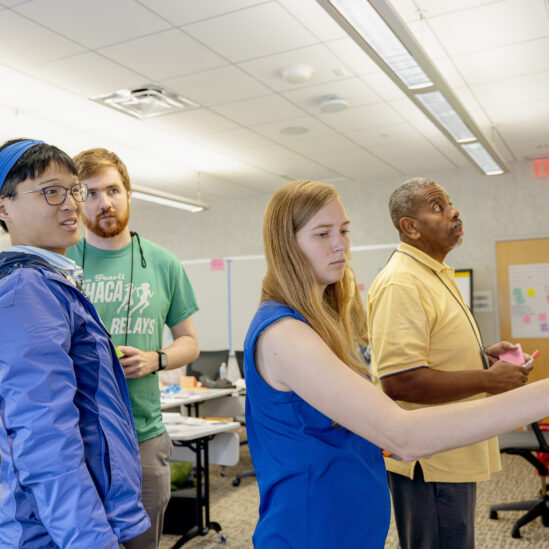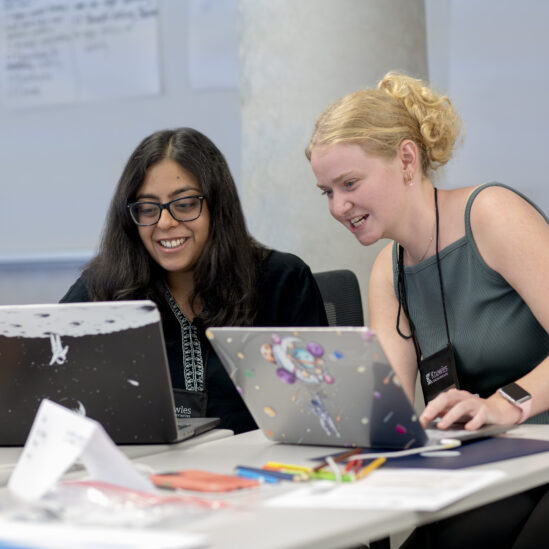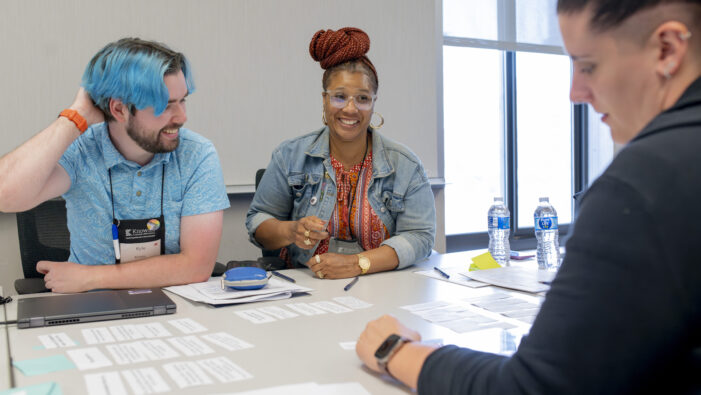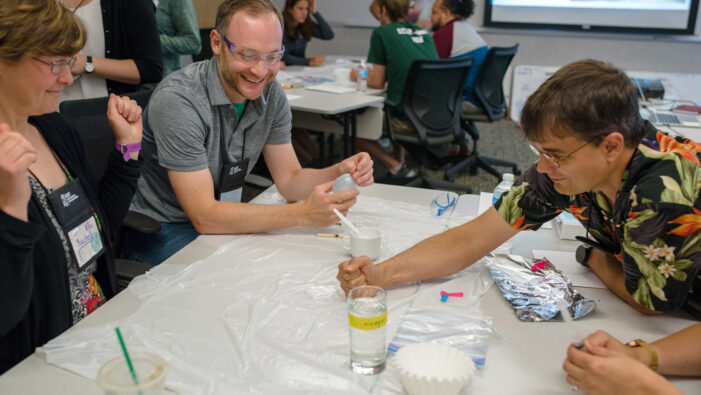Community Membership
Tap into a lifelong national network of 600+ Knowles Fellows. From in-person meetings to virtual connections; support is always available.

The Knowles Academy offers state-of-the-art professional development experiences for teachers. All Academy courses are designed and facilitated by experienced teachers who understand the complexities of teaching in today’s world. We offer both in-person and online courses and 90-minute online workshops for all teachers.

We understand the ever-evolving landscape of education. Our professional learning services are designed to be flexible and responsive, ensuring they can be tailed to meet the needs of schools and districts. Our services engage participants and serve as a model for best teaching practices.

How can we integrate engineering into math and science classes to help students develop a more meaningful understanding of real-world issues? We’ll use a Four-Level Empowered Engineering framework to explore how engineering integration in science and math offers students a range of opportunities for learning, engagement in community issues, and agency for solving problems in their world. Teachers will identify entry points in their curriculum to integrate engineering and social justice.

How can students learn to integrate their content knowledge with effective communication skills to solve meaningful and complex problems in a collaborative setting? In this workshop, teachers will learn strategies and principles for establishing a classroom culture of effective and meaningful student collaboration through the clear and intentional setting of actionable norms—working persistently, communicating productively, and taking risks. Leave this workshop with strategies that leverage the use of the actionable norms to encourage more students to effectively participate in groupwork activities.

Project-based learning (PBL) can be utilized to engage students, but most importantly should be a powerful lever to provide rigorous mathematical and scientific experiences for students. Come learn with us about the Project Planning Pyramid Framework, a tool developed to strengthen the disciplinary content and practices present in projects, in order to help support all students in accessing rigorous math and science through your PBL courses. Walk away with key takeaways for your next project.
Status imbalances in student groups can affect participation and learning, with higher-status students often dominating discussions. By recognizing and addressing these imbalances, teachers can create a more inclusive classroom, encouraging all students to engage, share their reasoning, and take academic risks.
In the third and fourth years of the Knowles Fellowship, teachers focus on understanding and improving learning opportunities by recognizing and addressing societal impacts on education. Through sharing personal stories and fostering inclusivity, they enhance student engagement and create equitable classrooms.
Knowles Staff, Joyce Lin and Ayanna Perry, share their experiences in co-creating norms can be challenging and problematic because it typically generates norms consistent with dominant perspectives and cultures. They advocate that norms should be given to (rather than created by) a newly formed community to elevate the different needs, goals, and perspectives of all team members.